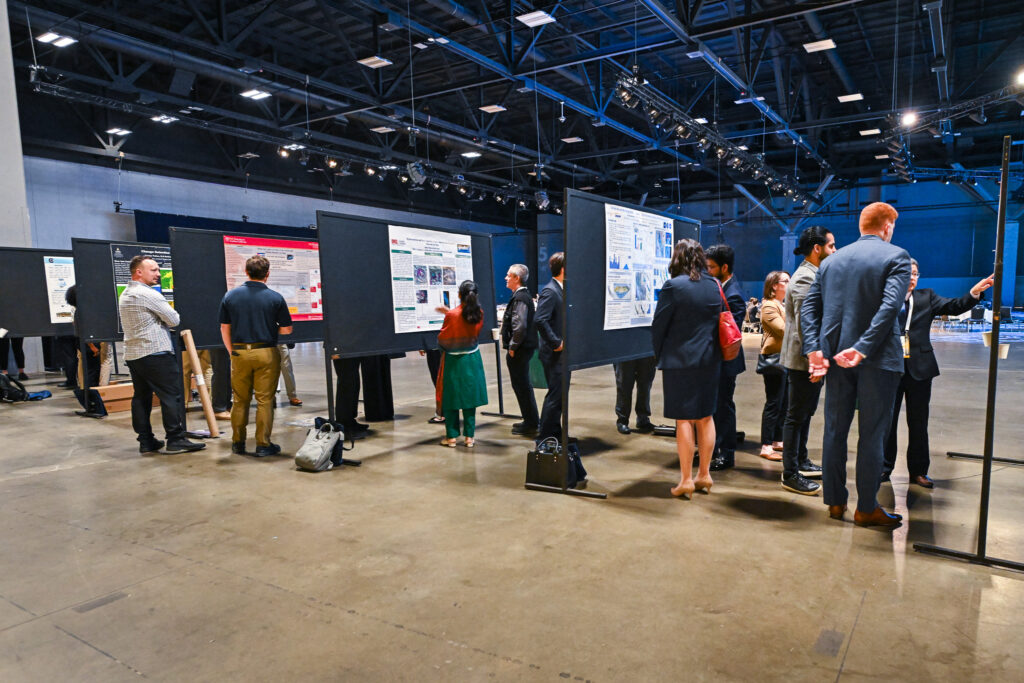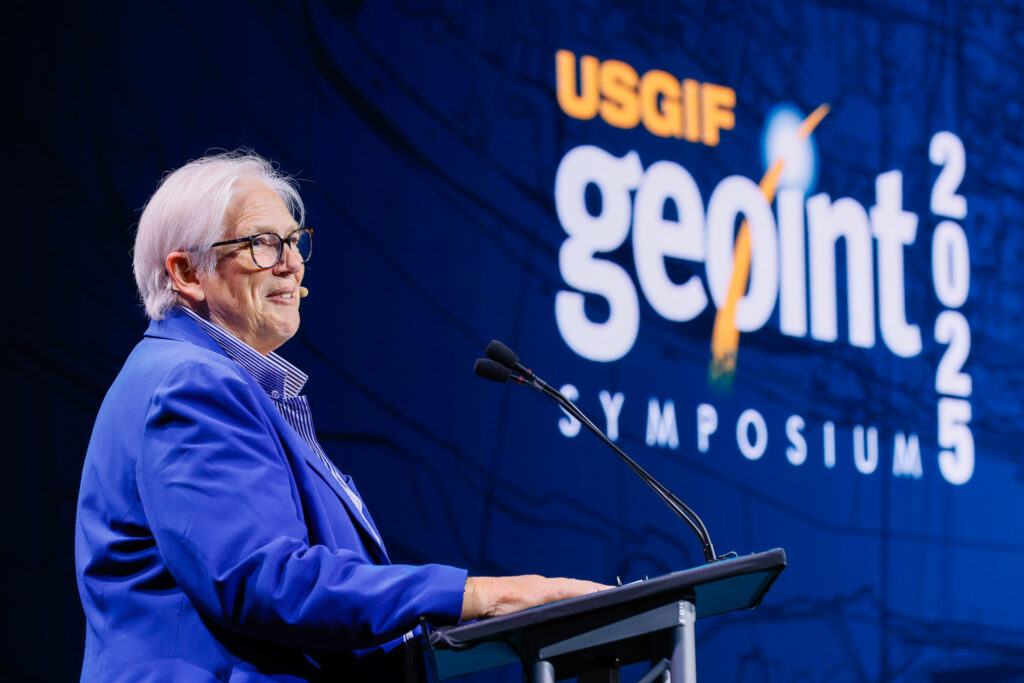AI and the Future of Geospatial Intelligence
AI promises to remake GEOINT analysis by offering a powerful new suite of data-crunching and report-creating tools

Artificial intelligence (AI) promises to transform the job of GEOINT analyst by enabling analysts to quickly identify solutions to previously unsolvable problems—but only if organizational changes are made to support tighter integration of GEOINT and AI. On the other hand, if current siloes remain between GEOINT analysts and the data scientist leading AI effort, then there’s a risk that GEOINT will miss out on some of AI’s potential benefits.
That is a key finding of a USGIF white paper published last year by USGIF’s Machine Learning and Artificial Intelligence Working Group, The AI-Enabled Analyst: The Future of Geospatial Intelligence. And it remains a pressing issue as GEOINT leaders prepare to gather on March 6 for USGIF’s Mission Focus: Generative AI And High Performance Computing event at Amazon Web Services.
While the focus of the March event is specifically Generative AI, which refers to pre-trained Large Language Models such as Microsoft’s ChatGPT, that’s hardly the only area in which AI promises to affect GEOINT analysis. For example, the white paper highlights the potential of AI and machine learning (ML) to enable GEOINT analysts to fuse together large volumes of data from disparate sources in compiling their analysis. AI/ML tools could also facilitate or perform higher-order tasks such as pattern recognition.
For now, though, the application of these next-level capabilities is constrained by a lack of knowledge: Many GEOINT analysts don’t have the specialized AI/ML training needed to wring full value out of the emerging technologies. To remedy that, the white paper recommends fostering greater communication and collaboration between analyst teams and ML teams and working to promote a shared vocabulary and understanding between them.
That notion of the need to democratize AI—to make its benefits more accessible to everyday users and not just specially trained data scientists—is hardly unique to GEOINT. That’s part of what has made generative AI applications such as ChatGPT such a breakthrough: they’re among the first AI applications that enable non-specialist users to intuitively interact with AI, and to gain significant value from those interactions. The white paper calls for more of that, in the form of application programming interfaces (APIs) designed to make AI computing accessible and intuitive for non-specialists.
A related prediction is for the emergence of more “no-code” GEOINT AI applications through which analysts will be able to make highly specific requests that draw on massive amounts of geographic data and facilitate precise, high-value insight without requiring the analyst to understand what’s happening behind the scenes.
Of course, over-reliance on AI outputs comes with its own set of dangers, and the white paper authors make several recommendations to ensure safe adoption of AI tools, including smart governance, strong leadership and ongoing training and investment.
AI promises to remake GEOINT analysis by offering a powerful new suite of data-crunching and report-creating tools. To harness that power, however, there is plenty of work to do—work that involves old-fashioned leadership and, alas, cannot yet be delegated to an algorithm.
With a rapidly evolving technology such as AI, the commitment to staying on top of new developments is especially vital. One way to grow your own AI expertise is to join us on March 6—click here to register.
Related Articles
USGIF Celebrates 2025 GEOINT Symposium Student Poster Winners
USGIF proudly recognizes the outstanding achievements of the top three winners of the 2025 Student Poster Competition, selected from an exceptional field of uni…
USGIF Honors Vice Admiral Robert Sharp, USN (Ret.), with 2025 Lundahl-Finnie Lifetime Achievement Award
The United States Geospatial Intelligence Foundation (USGIF) is proud to announce Vice Admiral Robert “Bob” Sharp, USN (Ret.), as the recipient of the 2025 Arth…
GEOINT Symposium 2025 Day Three Recap
GEOINT’s Next Frontier: Space Collaboration and Strategic Alignment The final general session day of the 2025 GEOINT Symposium highlighted the challenges and o…




